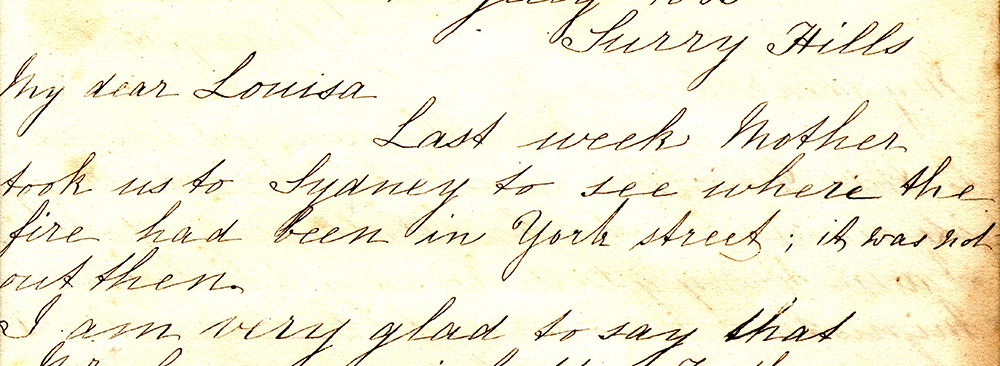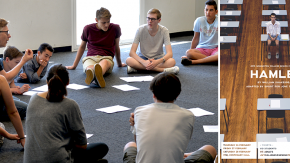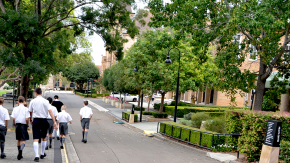Who was Fanny Hayes?
Late last year Mr Rod Bosman, Director of Community & Development, spotted on eBay a school exercise book from the 1860s and asked me if we should acquire it for the College’s Archives. He thought it might provide a good illustration of teaching methods during that period. I agreed, but neither of us expected it to have any connections with Newington.
The exercise book contains ‘letters’ written to practise handwriting and composition. They are signed ‘F.A. Hayes’, ‘Fanny A. Hayes’, ‘Frances Ann Hayes’ or just ‘Fanny’ and have ‘Surry Hills’ (and in one case ‘181 Campbell St’) under the date. They date from August 1864 to November 1865. Most are to female friends (e.g. Lydia, Louisa, Annie), who were perhaps her schoolfellows. Generally the letters contain news of Fanny’s family and life. Some are formal invitations, or responses to invitations, to picnics and birthday parties, A few are annotated, presumably by Fanny’s teacher, though the comments — ‘V bad’ and ‘Careless’ — seem a little harsh. Enclosed with the book was a photograph of a young girl who may well be Fanny.
A number of Fanny’s letters refer to her attending Sunday School and going to ‘chapel’ with her parents and grandmother. In this context she mentions several names from Newington’s early history. One is ‘the Rev’d Mr Rabone’, undoubtedly Stephen Rabone (1811–1872), a prominent advocate for the establishment of Newington and subsequently the first Chairman of the College’s Council. ‘Miss Rabone’ is reported as playing the harmonium in Sunday School. Another name is the Reverend George Hurst, who was the Wesleyan Methodist minister at Surry Hills from 1862 to 1864 and who served on the College Council from 1867 until his death in 1885. Hurst was appointed to the Methodist circuit in Wollongong in 1865; Fanny reports Mary Hurst being presented with a Bible and hymn book, and Annie Hurst with ‘a nice little book’, by their teachers and classmates on their departure for Wollongong. Finally, Fanny also mentions visiting ‘The Reverend Fletcher at Parramatta’, almost certainly the Reverend Joseph Horner Fletcher, who served as Newington’s second President from April 1865 to 1887.
Most likely, the school that Fanny attended was the Wesleyan Methodist Day School at Surry Hills, one of nine such schools operated by the Methodists in and around Sydney in the years before Sir Henry Parkes’ great education reforms. While we know little else about Fanny Hayes, her exercise book tells us much about her childhood life, as well as providing a glimpse of education in the 1860s and some unexpected links to Newington College.
Mr David Roberts
College Archivist






